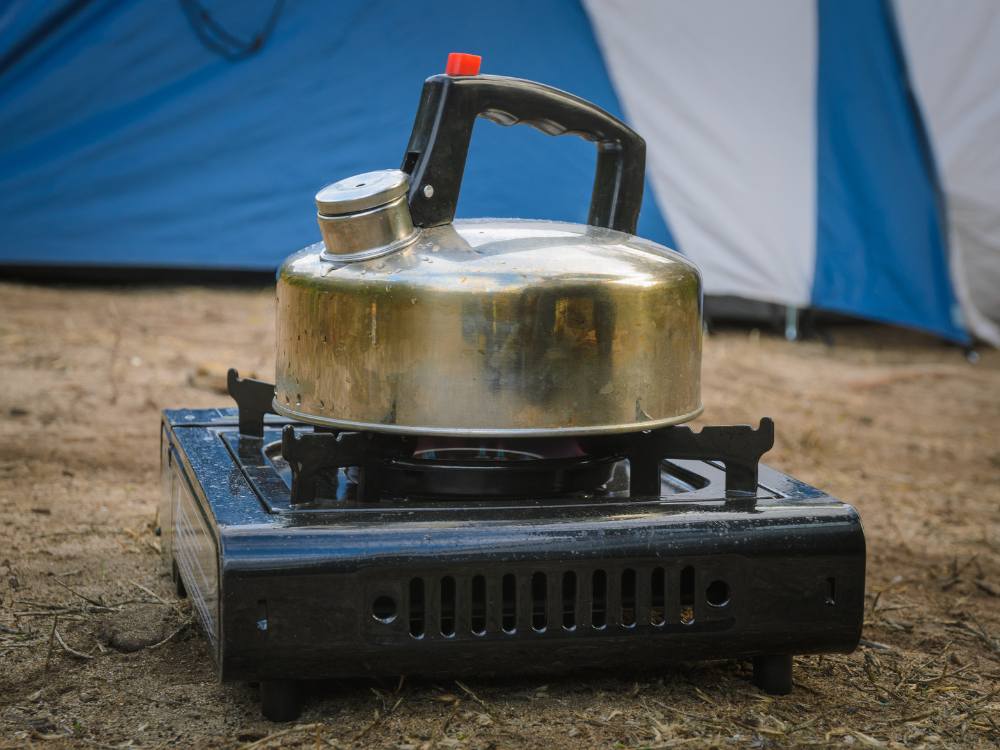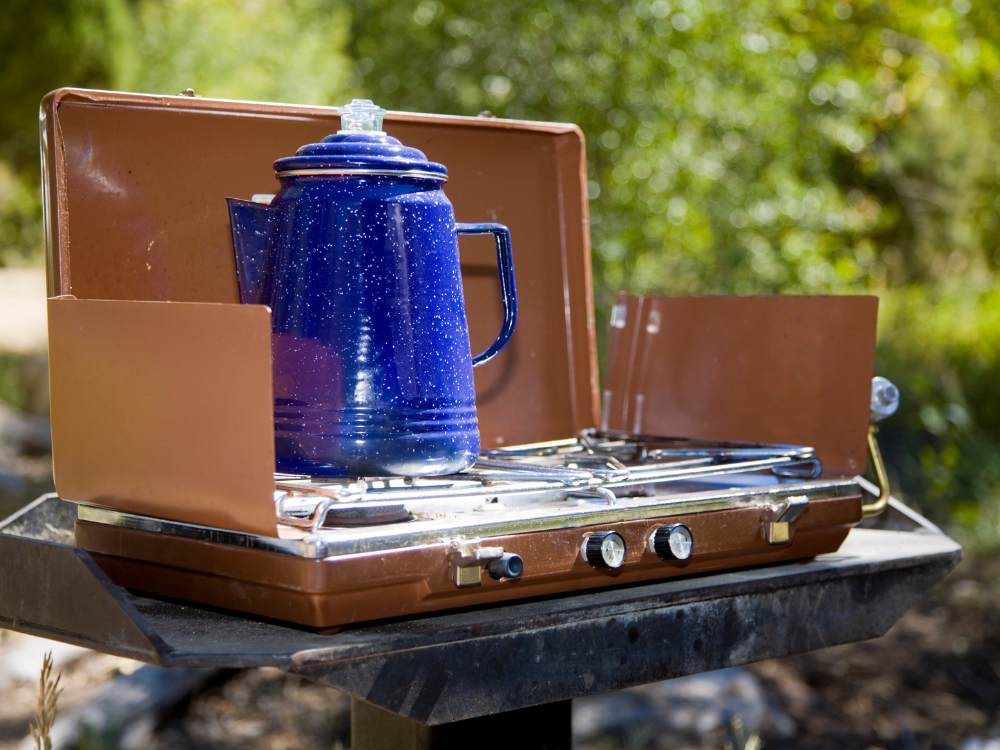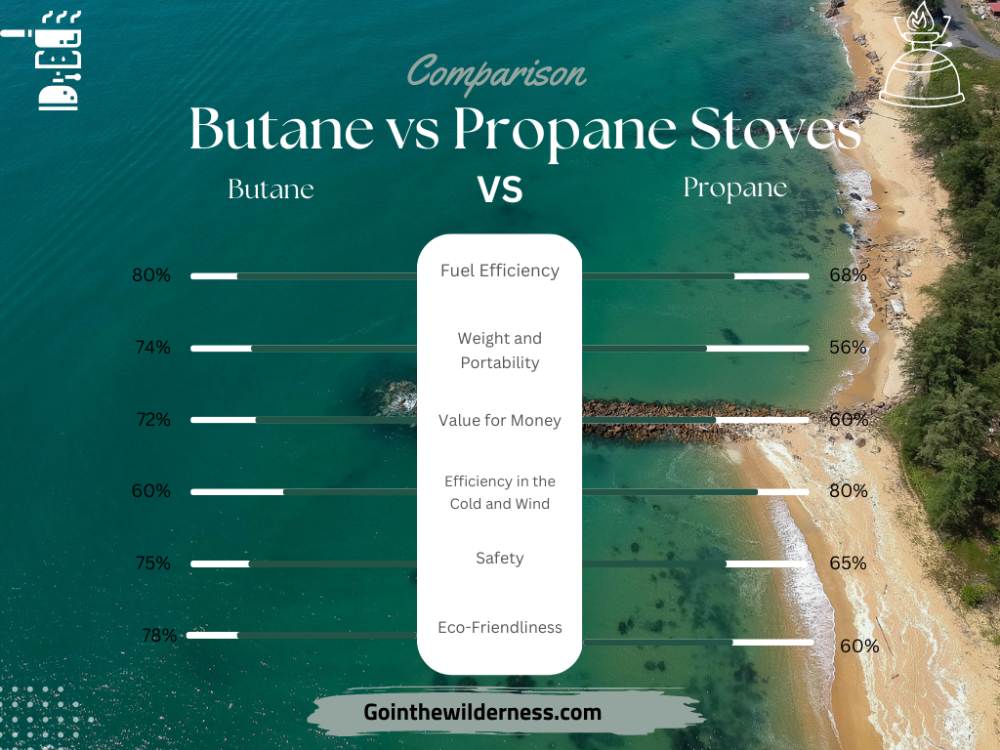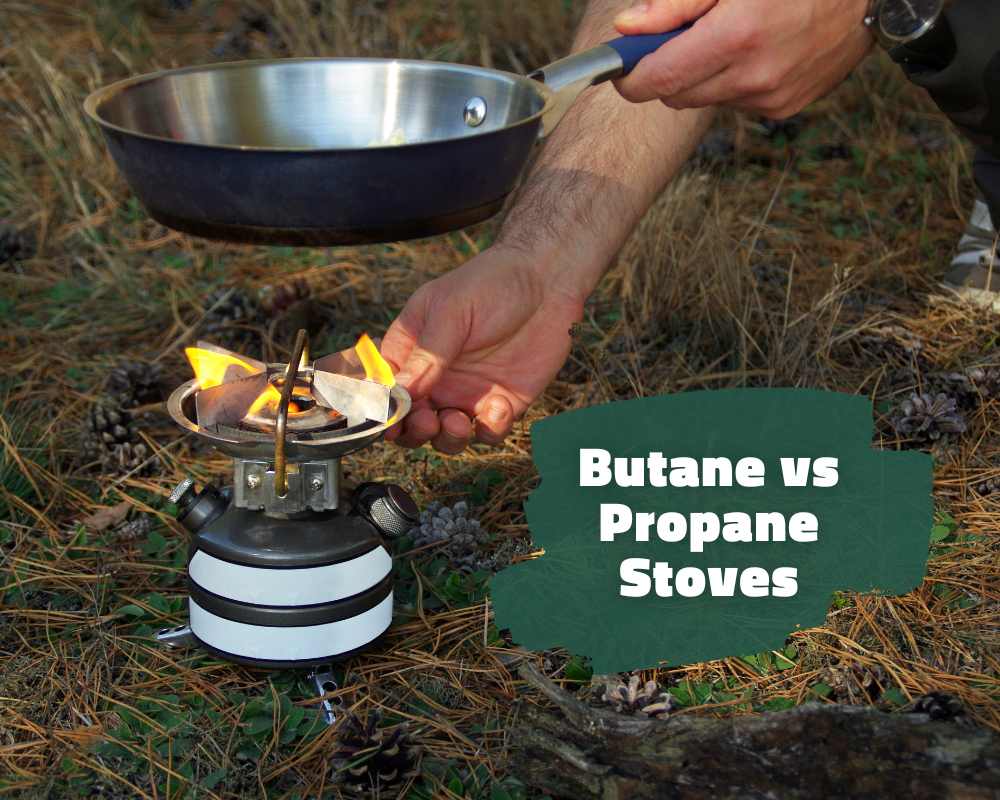When it comes to camping stoves, butane stoves and propane stoves are very popular choices. But which should you buy? Well, it all depends on your camping needs.
Depending on factors like portability, fuel efficiency, safety and eco-friendliness, butane stoves and propane stoves bring different advantages and disadvantages.
With this article, you’ll get a side-by-side comparison of butane stoves and propane stoves. By the end, you should know which stove type is best for you!
Main Features of Butane Stoves

Butane stoves are available in both single and double-burner options. They are typically lightweight and easy to pack, making them a great option for backpackers and hikers who need to pack light.
In general, butane stoves are also easy to use and maintain. They usually come with simple control knobs or buttons for adjusting the flame and temperature. This makes butane stoves a great option for beginners—and adventurers who don’t want to deal with complicated equipment!
Main Features of Propane Stoves

Propane stoves are typically more powerful than butane stoves, which means they can boil water faster and cook food more evenly. They are also known for their reliability and efficiency in cold and windy weather, making them a great option for camping in colder climates and at higher elevations.
The downside of propane stoves: unlike butane stones, they can be large and heavy, with the fuel canisters also weighing in higher than butane canisters. A propane stove might not be the best choice if you want to pack light.
Butane vs Propane Stoves for Camping
So you’ve seen already that there are some differences between butane and propane stoves. In this next section, you’ll get a closer comparison of the two types. This should help you decide which kind of camping stove you need!
Fuel Efficiency
Fuel efficiency is an important factor to consider during camping. If you have a fuel that’s inefficient, you’ll need a lot more of it to keep a fire going, for instance. Needing more canisters of fuel can add unnecessary weight to your pack and be more costly, too!
Butane stoves are about 10 to 12 percent more fuel efficient than propane stoves. This means butane stoves can run for longer on a single canister of fuel. Note that butane stoves lose efficiency significantly, however, in cold temperatures of under 40 degrees Fahrenheit.
Weight and Portability
As touched on in the previous section, there is a difference in weight between butane and propane stoves—as well as their respective canisters. One of the stove types is a lot more readily portable as well.
On the one hand, butane stoves are relatively lightweight, compact, and portable. Butane canisters, being made out of aluminum, are also lightweight. Furthermore, butane canisters take up a lot less room than propane canisters as they come in 8-ounce sizes and are easily stackable.
Propane stoves, on the other hand, can be heavy, large, and cumbersome. Propane canisters are also heavier, weighing in at anywhere from seven ounces to a pound. This is because they have to be made out of tough, heavy stainless steel to protect the propane stored at high pressure inside.
Value for Money
As well as weight and portability, cost is often a factor to consider for bushcrafters and campers. Propane canisters are generally more expensive than butane canisters. In addition, butane burns more efficiently meaning each canister will last longer and you’ll need to buy less of them overall. A butane stove is, then, certainly the more cost-effective choice!
Efficiency in the Cold and Wind
Some stoves are more effective than others in cold and windy weather. This could be a real deciding factor for you if you’re often out bushcrafting in such conditions.
Out of butane and propane stoves, it’s propane stoves that work best in the cold and wind. They’re a lot more powerful, which means their functionality is less affected by low temperatures and wind.
Butane stoves, meanwhile, lose a lot of functionality when the temperature hits 40 degrees Fahrenheit or lower. Below about 30 degrees Fahrenheit, butane ceases to vaporize altogether!
Safety
Safety is another important factor to consider when using a stove. You don’t want to be causing a fire!
In general, butane stoves are less powerful and less hot than propane stoves, meaning they’re less likely to cause a fire or explosion. You can also use the shut-off valve of a butane stove to turn the fuel off quickly in case of overheating. Never take this for granted, though; a defective valve will immediately reverse that benefit and pose safety risks, so it’s best to check regularly that the valve is intact.
In comparison, propane stoves are more powerful and so more prone to starting a fire or explosion. This is particularly the case if you’re new to using camping stoves and liable to mistakes. When using a propane stove, take extra care to set it up in a well-ventilated and spacious area where a fire can’t spread fast. In case of fire, know the ways to put out a campfire without water. Don’t use a camping stove inside your tent or trailer!
Tip: Whichever type of stove you go for, try to get a high quality model as it’ll likely be safer to use. Also, once you’ve bought your stove, make sure to read the instructions carefully so you know how to use it safely!
Eco-Friendliness
The final factor to consider when choosing a camping stove is the eco-friendliness (or unfriendliness!) of the fuel it uses.
Butane, used in butane stoves, is a hydrocarbon and produces CO2 and water vapor when burned. These are less harmful than propane’s emissions. Propane is a fossil fuel that, when burned, produces CO2 as well as pollutants that can have a significant environmental impact.
However, that’s not a reason to discount propane stoves altogether. In terms of sustainability, propane canisters are arguably the better option—you can simply refill and reuse them, rather than having to throw them away. That isn’t possible with butane canisters, which you have to discard and buy afresh every time.
Tip: You can fill up propane canisters at many gas stations and grocery stores.

…And that’s it! You now know the major pros and cons of butane stoves and propane stoves. Butane stoves are portable, lightweight, efficient, and relatively safe, while propane stoves are more powerful, sustainable, and effective in cold and windy climes.
In the end, which stove type you go for depends on your needs. If you’re struggling to decide, return to this guide to help you choose!
I am Bruno. Navigating the urban rush by day, I find peace under the stars by night. Alongside my loyal companion and co-adventurer Lilith, we explore the balance between city life and nature’s embrace. Through writing and films, I delve into bushcraft and the wild’s allure.
GointheWilderness is my bridge between these two realms, guiding you to reconnect with your innate wilderness.
Eden is here and now; join us in rediscovering it.

